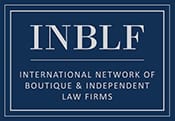Day and Temp Labor Agencies, And Their Clients, Face Legal Changes
By Eric F. Greenberg, Attorney-at-law
New legal requirements that are intended to protect day and temporary workers have toughened obligations on staffing agencies that supply such laborers in two states. That in turn is making life harder for companies who use their services, notably contract packaging and manufacturing businesses. Opponents worry that similar requirements could spread to other states.
Legislators are motivated by the sensible goal of protecting workers from abuses by some problematic staffing providers, but the new law imposes a range of legal obligations on all such providers, both good and bad.
“Coman” and “copack” [CM/CP] companies commonly rely on day and temp workers so that they can quickly and effectively fulfill their clients’ requests, often on short notice. The CM/CP companies’ efficient, flexible responsiveness is a big part of what they are providing to clients.
The Illinois Day and Temporary Labor Services Act has been around for some time, but significant amendments were made to it this year, and a similar law was recently passed in New Jersey. Among the Illinois law’s provisions is a requirement that if day or temp workers work for over 90 days for a company, their pay must equal what’s paid to employees hired directly by the company, and they have to be provided the same benefits, or their cash equivalent. There are reporting and notice requirements that the temp services must fulfill, recordkeeping obligations for the client CM/CP companies, and penalties for violations including, alarmingly, a provision allowing private parties to sue to enforce the law.
Illinois legislators said when passing this new law that there are about 650,000 people who work as day or temporary workers in the state, and about 300 day and temp labor service agencies that are registered to operate there. Legislators suspect that many others operate but are unregistered. They believe that low-wage day and temp workers “are particularly vulnerable to abuse of their labor rights, including unpaid wages, failure to pay for all hours worked, minimum wage and overtime violations, and unlawful deductions from pay for meals, transportation, equipment, and other items.”
Tom Landry of the national staffing agency Allegiance Staffing says laws like Illinois’ place obligations on agencies to provide things that many reputable staffing agencies already provide. “These are best practices. Good operators have no problem with this,” he says. For example, good staffing agencies already provide benefits to day and temp workers, he notes, and he adds that he himself has called for sensible regulation of the industry for years. What’s more, he says many of the protections the new amendments provide for would have been possible without the amendments, if only the pre-existing law were properly enforced. In addition to his business, Landry serves on the Board of Directors of the Contract Packaging Association (CPA), the most prominent trade association for contract packagers and manufacturers. [The author serves as General Counsel to CPA – Ed.]
But Landry fears that some of the new law’s requirements could be impractical to implement, such as the paycheck reporting obligations, which could cause confusion and lead to inadvertent violations by staffing agencies.
Landry is concerned that the law seems to characterize good staffing agencies as if they’re making “indentured servants” of their employees. He defends such companies, explaining that “Our employees work for us because they like the flexibility. They can pick and choose who they go to work for and on their schedule. They get free job training provided by [CM/CPs], they get exposed to multiple industries and work environments. They gain experience that helps them secure a better life. Good staffing agencies promote conversion [to full-time employees], it helps us recruit more quality employees and builds a better bond with our [CM/CP] clients.”
Landry thinks laws like this are headed for court challenges, and the similar one in New Jersey is already being challenged as unconstitutionally vague. It seems likely that laws like this will be the subject of ongoing debate in coming years, as proponents look for ways to protect workers and the affected businesses advocate for clarity and practicality. PW
Eric Greenberg can be reached at [email protected]. Or visit his firm’s website at www.ericfgreenbergpc.com.
INFORMATIONAL ONLY, NOT LEGAL ADVICE.


